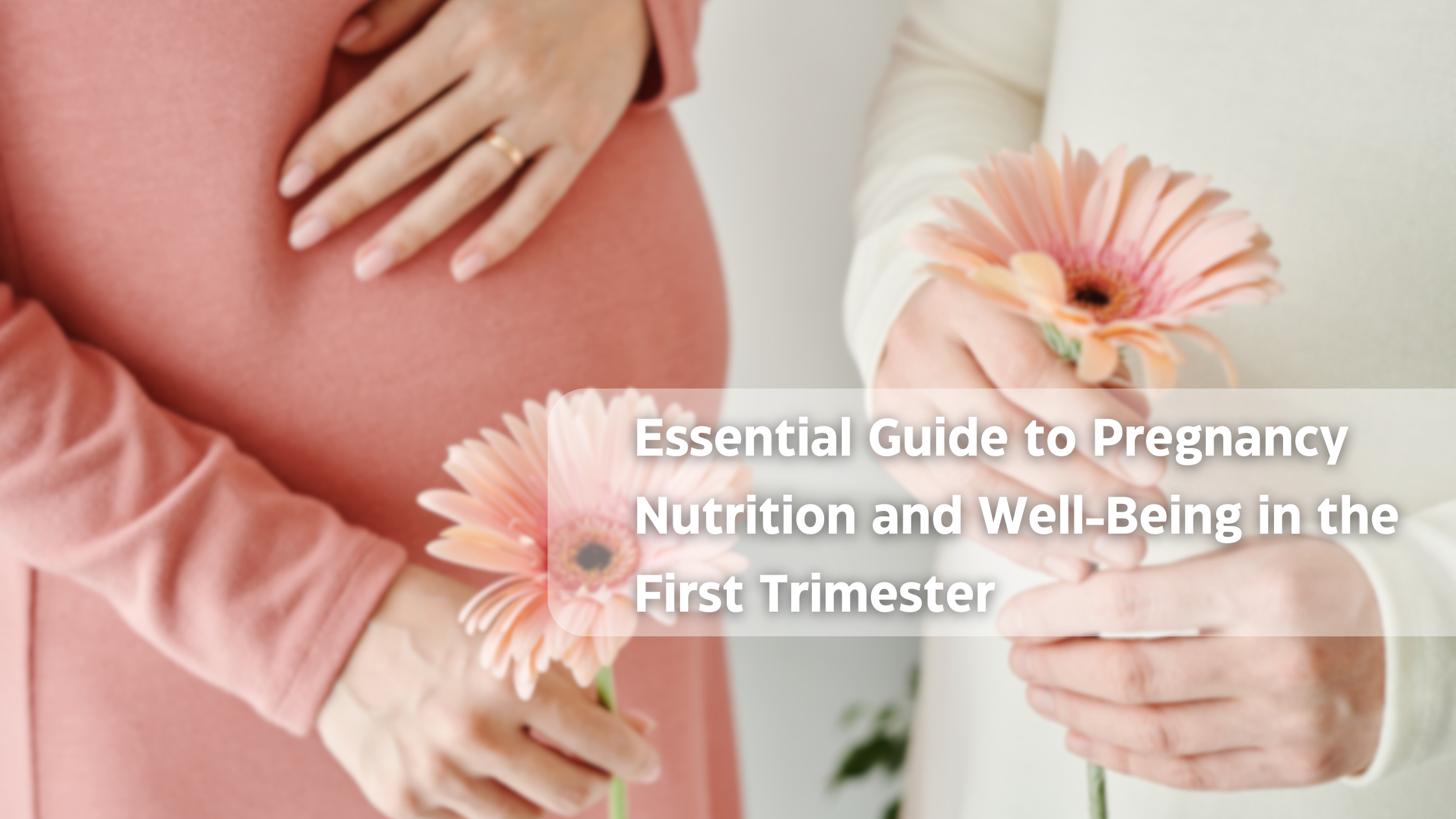Essential Guide to Pregnancy Nutrition and Well-Being in the First Trimester
Understanding the Importance of Pregnancy Nutrition

Assessing Nutritional Needs During the First Trimester
The first trimester is a crucial time for your baby's development. Your body needs extra nutrients to support this growth. It's important to eat a balanced diet with plenty of fruits, vegetables, and whole grains. Protein is also key for building your baby's tissues. Aim for lean meats, fish, eggs, or plant-based proteins. Dairy products are great for calcium, which helps build strong bones. Remember, you don't need to eat for two. You only need about 300 extra calories per day. Focus on quality, not quantity. Stay hydrated by drinking plenty of water throughout the day. This helps your body absorb nutrients and reduce common pregnancy symptoms like nausea.

Key Nutrients for a Healthy Pregnancy
During pregnancy, certain nutrients become even more important. Folic acid is crucial for preventing birth defects. You can find it in leafy greens, citrus fruits, and fortified cereals. Iron helps your body make extra blood to support your growing baby. Good sources include lean red meat, poultry, and beans. Calcium is essential for strong bones and teeth. Get it from dairy products, leafy greens, and fortified foods. Omega-3 fatty acids support brain development. Look for fatty fish like salmon or take a supplement. Vitamin D helps your body absorb calcium. You can get it from sunlight, fatty fish, and fortified foods. Don't forget about fiber to prevent constipation, a common pregnancy issue.
ESSENTIAL MATERNITY PRODUCTS FOR THE FIRST TRIMESTER
Finding the Right Prenatal Vitamins
Prenatal vitamins are a must-have during pregnancy. They fill in any nutritional gaps in your diet. Look for a vitamin with folic acid, iron, calcium, and vitamin D. Some also include DHA, an omega-3 fatty acid that supports brain development. Choose a vitamin that's easy to swallow and gentle on your stomach. If you have trouble with pills, try gummies or liquid forms. Always check with your doctor before starting any new supplement. They can recommend the best option for your needs. Remember, prenatal vitamins are a supplement, not a replacement for a healthy diet. Take them as directed, usually once a day with food.
Moisturizer for dry skin
Pregnancy hormones can cause dry, itchy skin. A good moisturizer can help keep your skin soft and prevent stretch marks. Look for products with natural ingredients like cocoa butter or shea butter. These are safe for pregnancy and effective at hydrating skin. Avoid products with retinoids or salicylic acid, which may not be safe during pregnancy. Apply moisturizer right after showering when your skin is still damp. This helps lock in moisture. Pay extra attention to your belly, hips, and breasts, areas that will stretch as you grow. Don't forget your face - pregnancy can cause skin changes here too. A gentle, fragrance-free moisturizer can help keep your skin balanced.
MANAGING MATERNAL HEALTH AND WELL-BEING
Common Health Concerns During Pregnancy
The first trimester can bring several health challenges. Morning sickness is common, affecting up to 80% of pregnant women. Eat small, frequent meals and stay hydrated to help manage nausea. Fatigue is another common issue. Listen to your body and rest when you need to. Mood swings are normal due to hormonal changes. Talk to your partner or a friend if you're feeling overwhelmed. Constipation can be a problem. Drink plenty of water and eat fiber-rich foods to help. Back pain may start early in pregnancy. Practice good posture and avoid heavy lifting and breast tenderness is common. Wear a supportive bra for comfort. If you experience severe symptoms or bleeding, contact your doctor immediately.
Tips For Maintaining A Healthy Lifestyle
Staying healthy during pregnancy involves more than just eating right. Regular exercise is important, but check with your doctor first. Walking, swimming, and prenatal yoga are great options. Aim for 30 minutes of moderate activity most days of the week. Get plenty of sleep because your body needs extra rest now. Aim for 7-9 hours per night. Manage stress through relaxation techniques like deep breathing or meditation. Avoid harmful substances like alcohol, tobacco, and unprescribed drugs. Limit caffeine to 200mg per day or less. Stay up to date on your prenatal appointments. These check-ups are crucial for monitoring your health and your baby's development. Don't hesitate to ask your doctor questions - they're there to help you have a healthy pregnancy.

Remember, every pregnancy is unique. What works for one woman may not work for another. Listen to your body and work closely with your healthcare provider. With the right care and preparation, you can navigate your first trimester with confidence.

